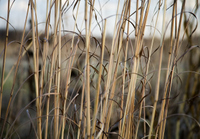Ecosystem Restoration Strategy Report
Ecosystem Restoration Strategy Report Summary

All life depends on healthy ecosystems. Ecosystems assist in climate stabilization, mitigate floods and droughts, purify the air and water and pollinate crops and natural vegetation. They also provide a habitat for plants and animals as well as a space for humans to experience and appreciate nature. As the region grows, increased population and reliance on material goods will challenge the capacity of our ecosystems. Changes in hydrology, fragmentation of the landscapes, pollution and impervious surface often results from current development trends. These activities cause stress on ecosystems and inhibit the natural functions of ecosystems.
Restoration is one way to alleviate stress on our region's ecosystems by returning the land to its pre-development condition. The Northeastern Illinois region is fortunate to be actively involved in preservation and restoration efforts of woodlands, wetlands and prairies with over 225,000 acres of protected open space mostly contained in our forest preserve, conservation and park districts. Volunteering and supporting funding initiatives for ecosystem restoration in your community assists Illinois in reasserting its 1842 nickname as the "Prairie State."
A sample of findings:
- Ecosystem restoration improves biodiversity, water quality and air quality.
- Ecosystem restoration can mitigate stormwater and subsequent flooding events in our region.
- One-third of all human food originates from plants pollinated by over 100,000 wild pollinators including bats, bees, flies, moths, beetles, birds and butterflies.
- In 2005, the United Nations reported that 60% of the global ecosystems are not being replenished as fast as they are being used.
- Ecosystem restoration sites are often a more cost-effective use of land for cities and towns than residential sites due to additional services such as police, fire, electric and water infrastructure and roads.
- Healthy ecosystems have been shown to economically outperform man-made solutions in terms of the services they provide.
If you have questions about the Ecosystem Restoration Strategy Report, please contact Amy Talbot at atalbot (at) cmap.illinois.gov, or by calling 312-386-8646.
|
Links |